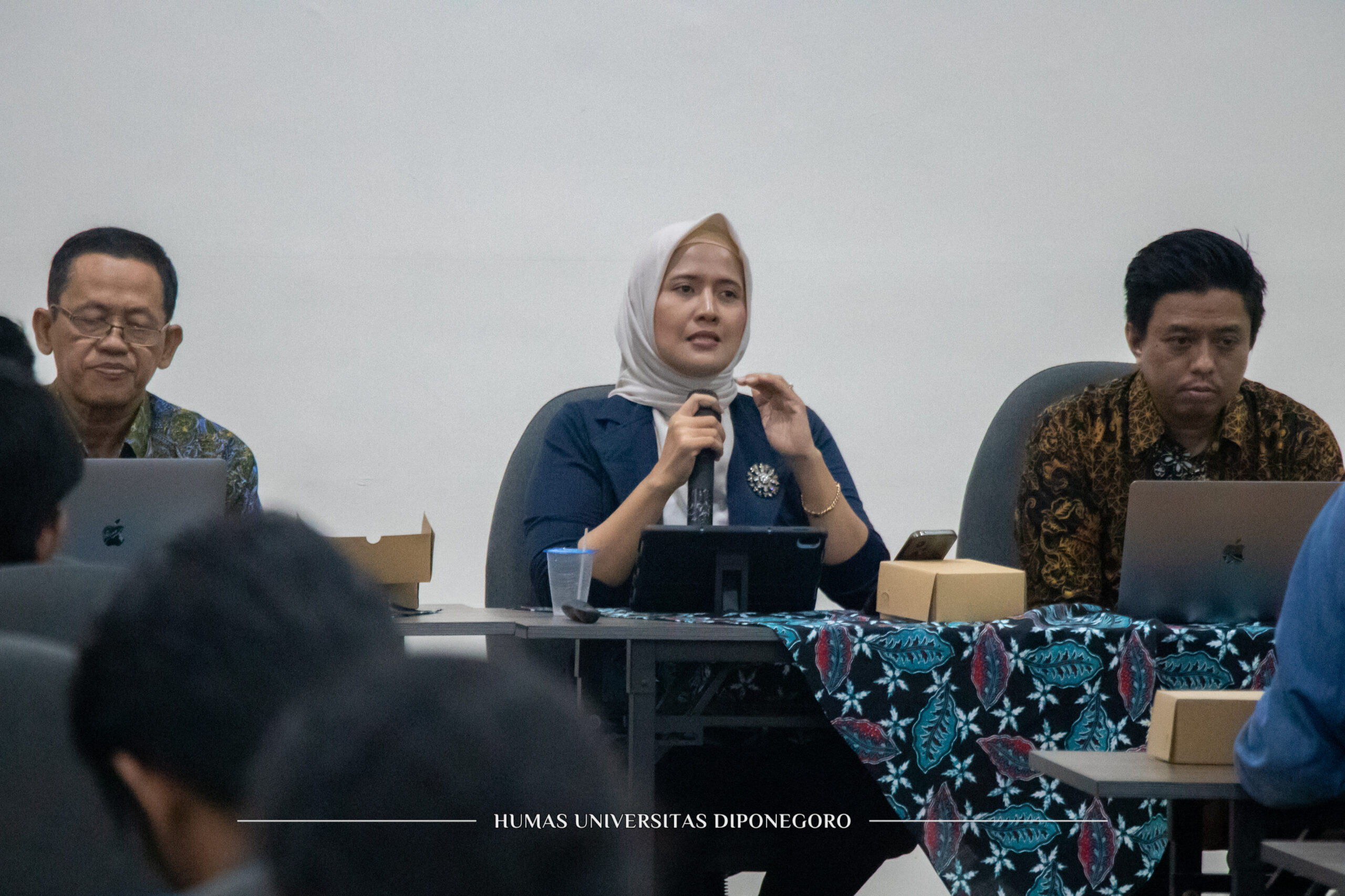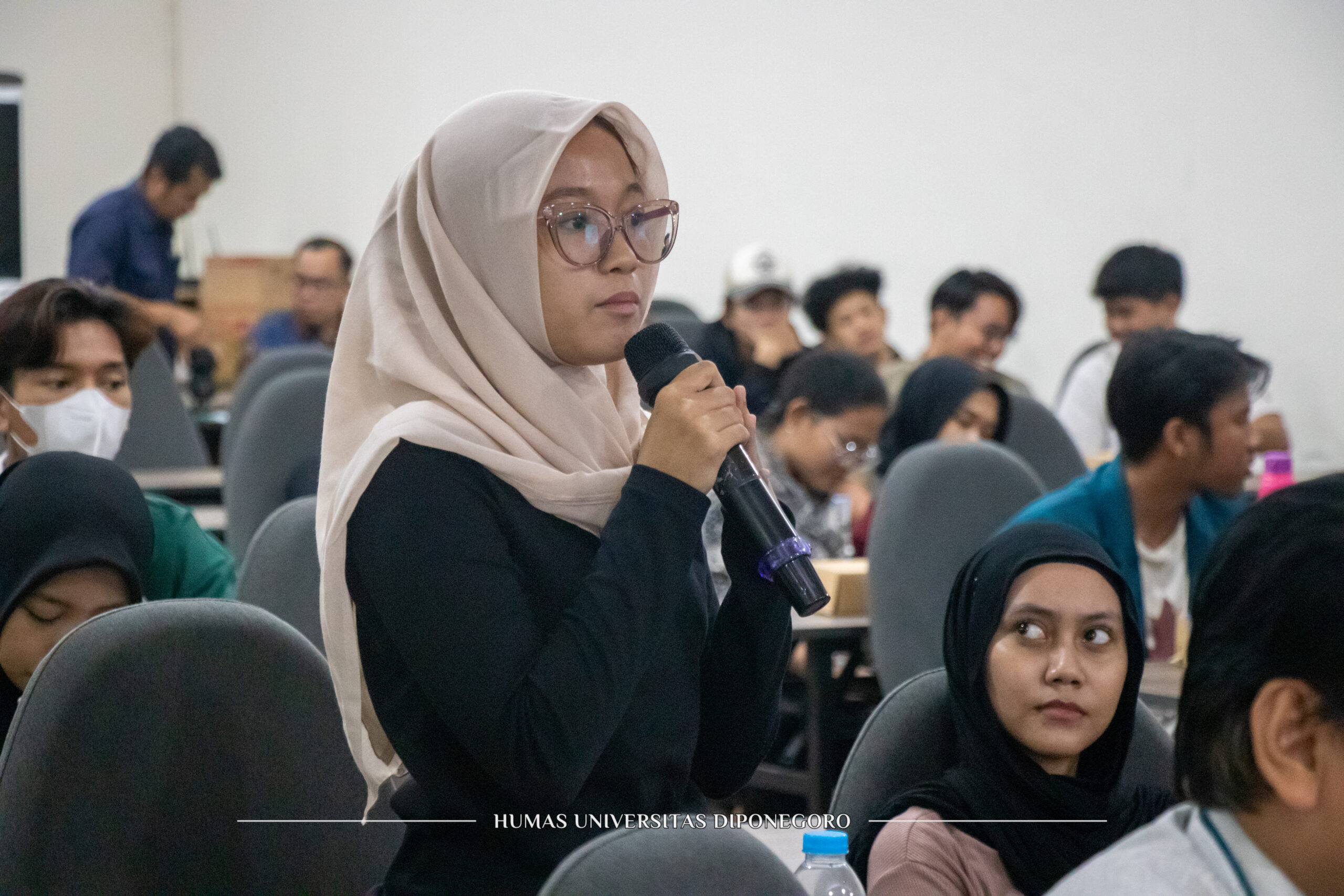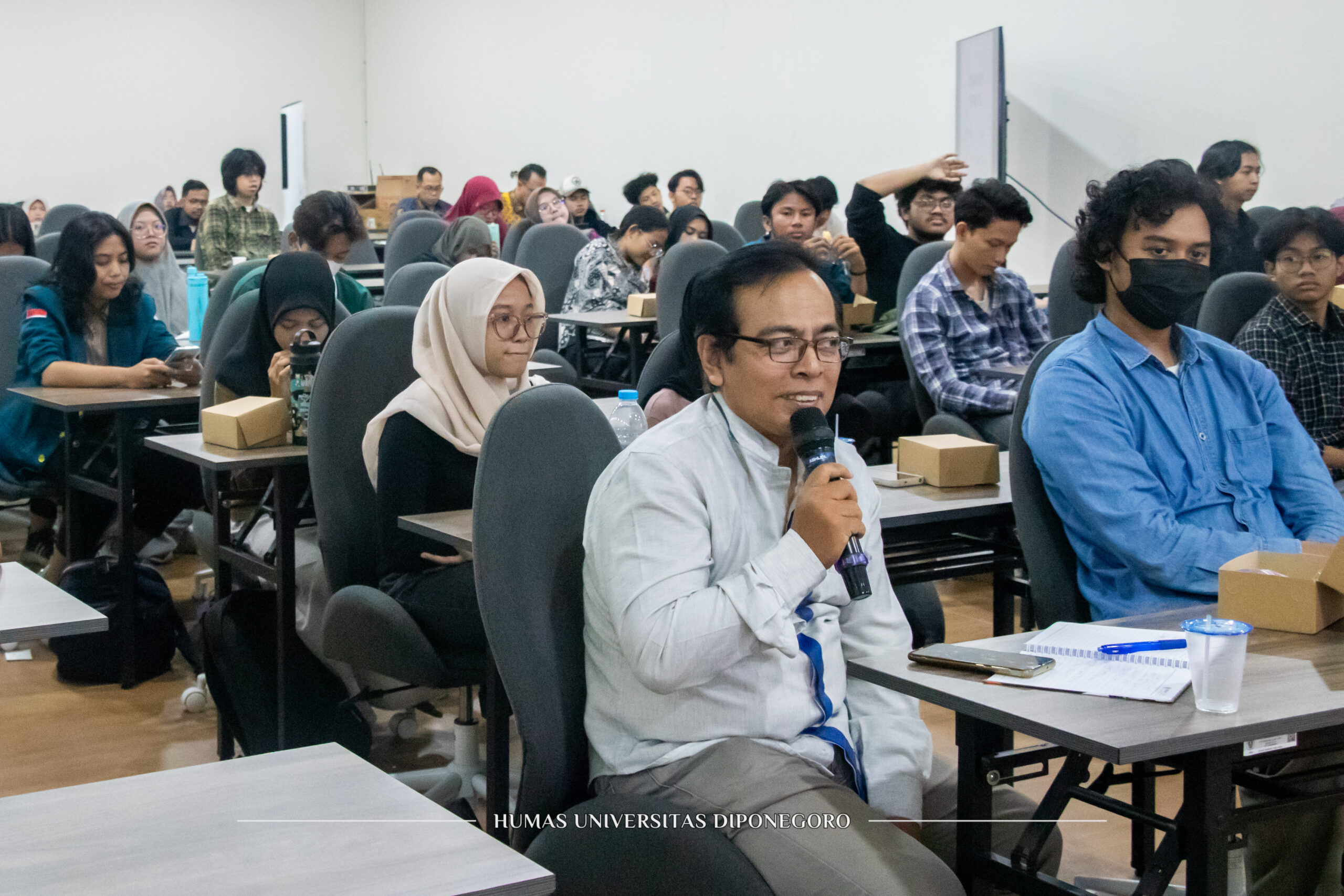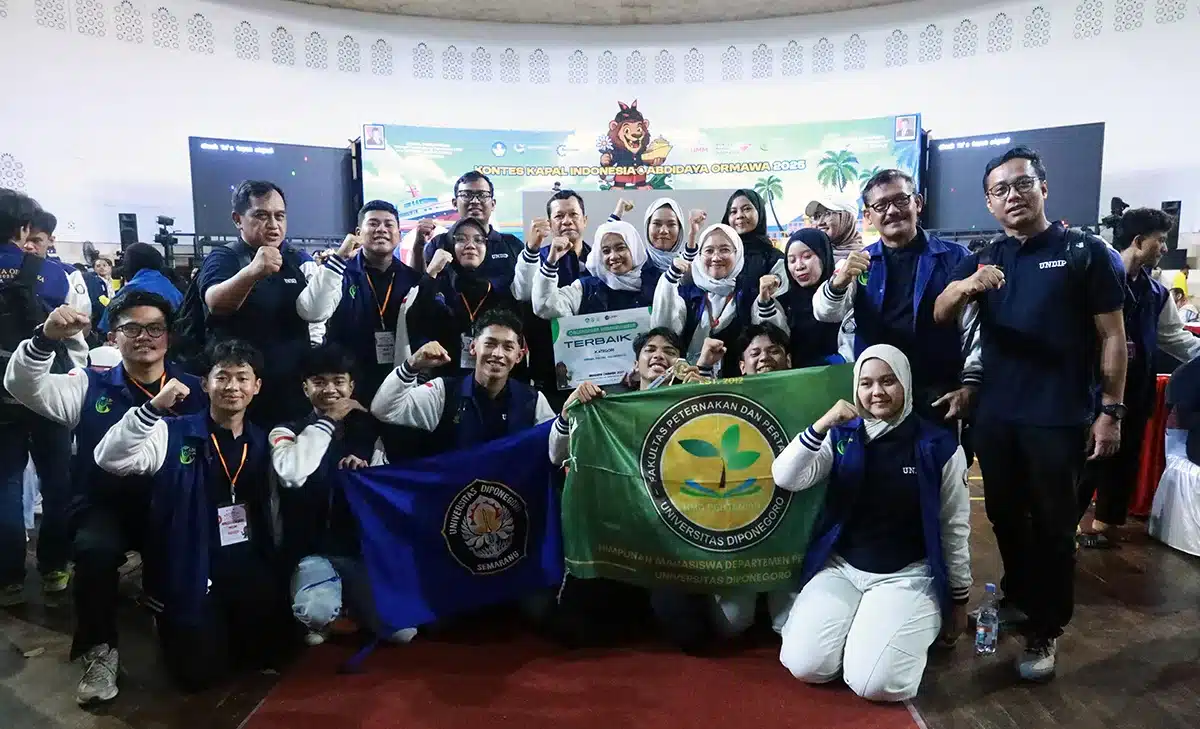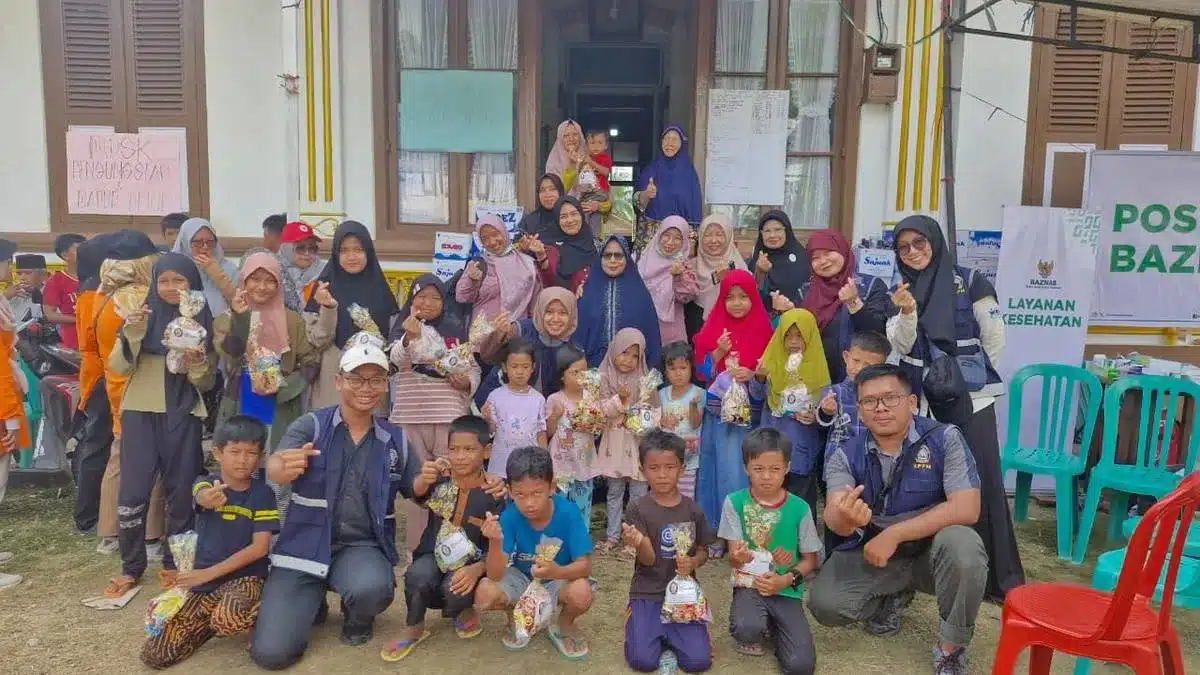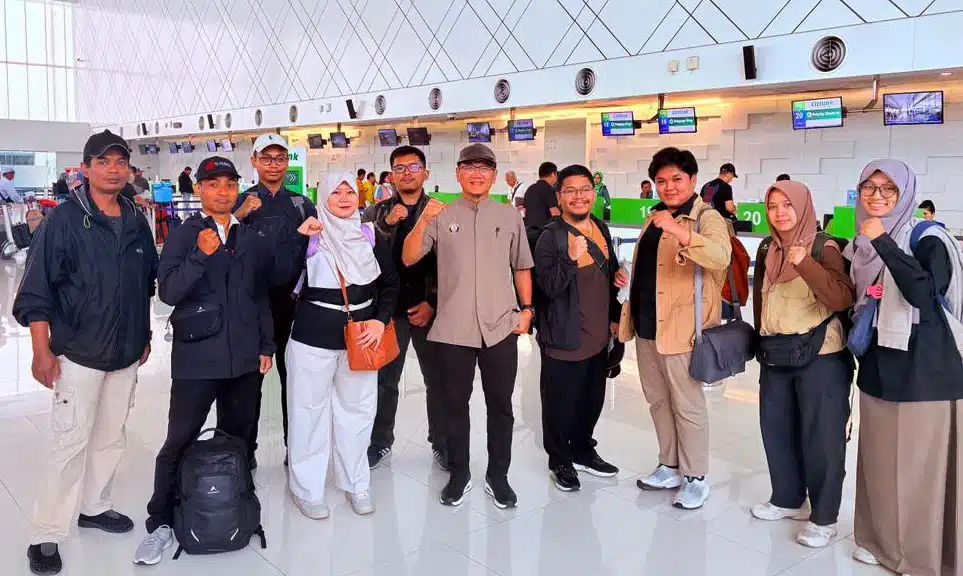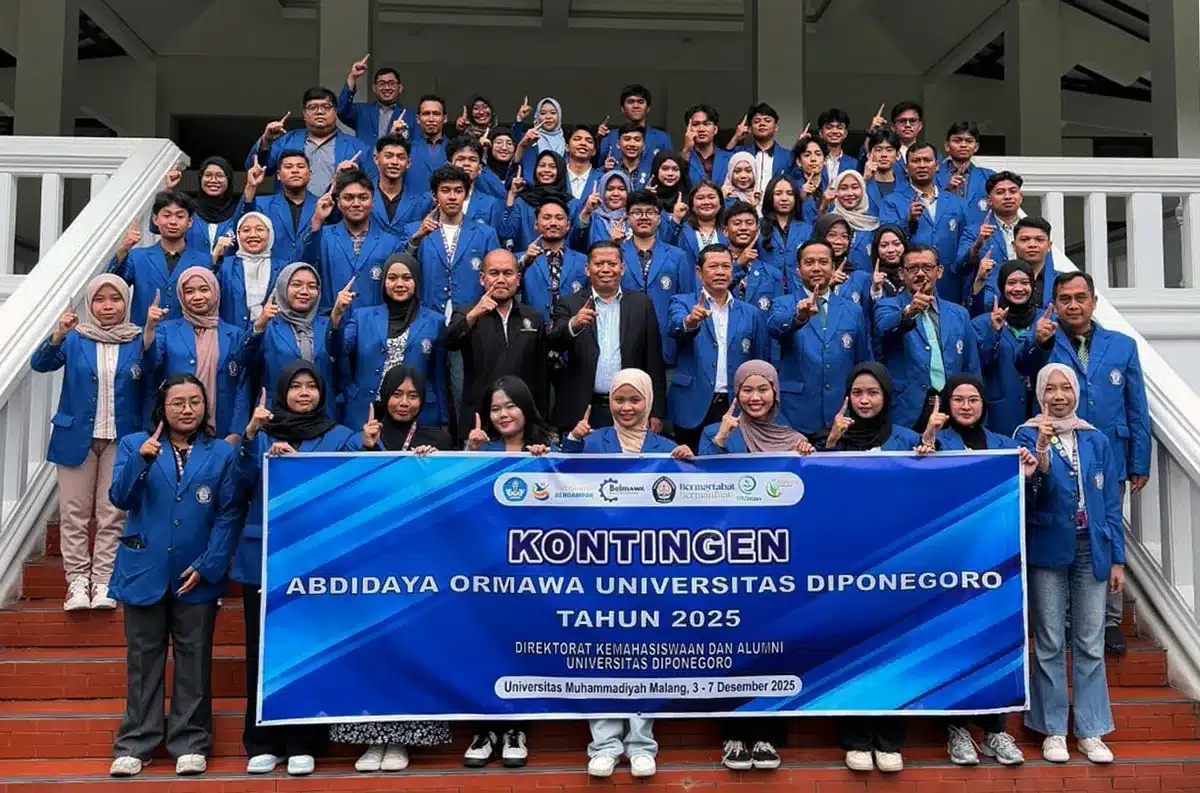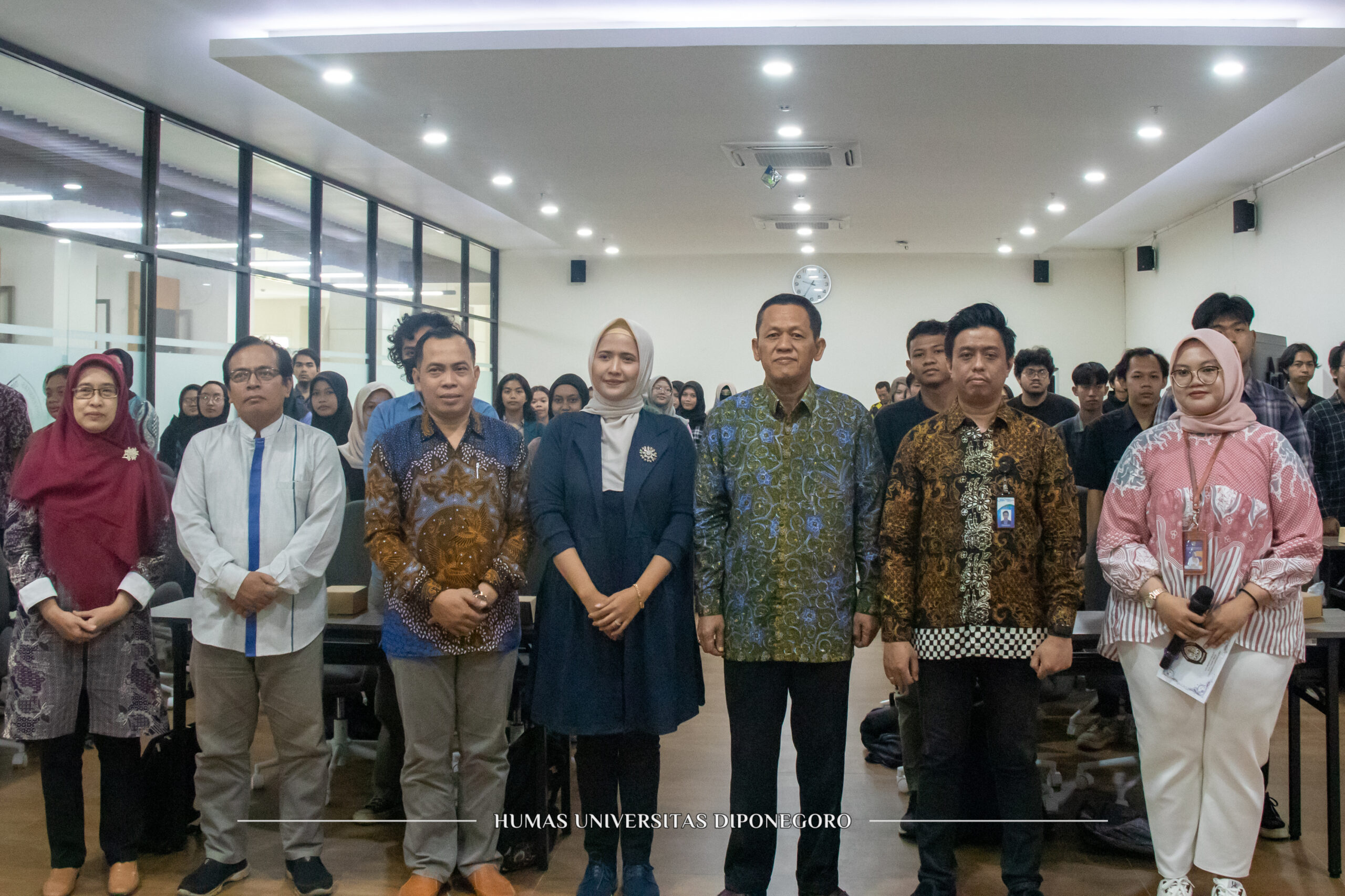UNDIP, Semarang – The UPT Library and UNDIP Press held a training event titled “Knowledge Sharing and Discussion on the Role of Standardization and Standards in Education and Business” at the Meeting Room (4th floor) of the UPT Library and UNDIP Press, Universitas Diponegoro, Tembalang Campus, on Thursday (31/10). A total of 60 participants enthusiastically attended the knowledge-sharing and discussion session, which was made even more engaging by the presence of competent speakers, namely Ir. Narulita Santi, S.T., M.Eng., a lecturer in Geological Engineering at UNDIP; Minanuddin, M.Hum., the Head of the Information Services and Library Team (Senior Librarian); and Firmansyah, M.Sc., the Head of the BSN Data Team.
It was moderated by Sri Endah Pertiwi, S.Sos., M.IP. The event aimed to introduce SNI (Indonesian National Standard) as a guideline and reference for learning processes and activities, a way to serve as a communication, discussion, and sharing platform for the academic community and other parties involved in academia.
In his opening remarks, Suwondo, S.Hum., M.Kom., Head of the UPT Library and UNDIP Press, expressed appreciation and gratitude to the speakers from BSN and others for organizing this recurring event aimed at encouraging UNDIP students to move forward.
Suwondo also hoped that this collaboration with BSN would continue, especially in student activities related to business. “We hope that visitors will make use of the SNI Corner on the 3rd floor, which allows direct interaction with BSN located next to it. The same applies to the optimal use of other facilities at the UPT Library,” Suwondo stated.
It is noteworthy that the SNI Corner at the UPT Library and UNDIP Press has existed since 2015, when it was initially located on the 4th floor. Overall, there are 34 SNI Corners spread across public universities, government agencies, and institutions in Indonesia, including 22 SNI Corners in public university libraries.
During her session, Ir. Narulita Santi, S.T., M.Eng., presented “The Role of Standardization in Supporting Learning and Entrepreneurship,” emphasizing UNDIP’s commitment to producing excellent graduates by preparing students to be qualified under the COMPLETE framework, one of which is entrepreneurship.
“BSN’s role in standardization includes establishing SNI, which assists the education process where business practitioners or aspiring entrepreneurs, particularly students, are expected to have competence and apply it to succeed while adhering to standards,” she explained.
“The positive impact of standardization on education is producing graduates ready to be competent entrepreneurs who meet industry needs. For entrepreneurs, standardization ensures that quality national products/services can be accepted globally, boosting Indonesia’s competitiveness,” Narulita added.
Minanuddin, M.Hum., discussed “Standards as a Reference in Education and Business,” explaining that standardization involves activities related to various business operations (industry and trade of products and services) and educational activities. These activities cover multiple fields of knowledge whose application is tied to business activities in many standard-reliant sectors.
“Standardization has become an area of study in higher education, which requires supporting references such as books, journals, standard documents, etc. Standardization activities and conformity assessments produce many references, including standards, books, and journals. Standards, as documents resulting from standardization activities, become references in standardization activities. They serve as the main reference in standardization activities,” Minanuddin explained.
Minanuddin emphasized that the academic community, including university librarians, needs to have competencies related to standards and standardization (at least related to their field of study or duty). “Prof. Sulistyo Basuki called for standardization to be included as course material in the Library Science program (expressed at the ISO 11620 Library Performance Indicators Standard Forum at the National Library of Indonesia on October 31, 2013),” he noted.
Firmansyah, M.Sc., presented “Standardization and Conformity Assessment Reference Sources,” explaining the types of services available at the BSN Library, including circulation services (internal only), reading services, standard document services (external/internal), and consultation services. The BSN Library’s collection includes standard documents, reference books, journals, magazines, conference proceedings, and repository collections. (DHW)
